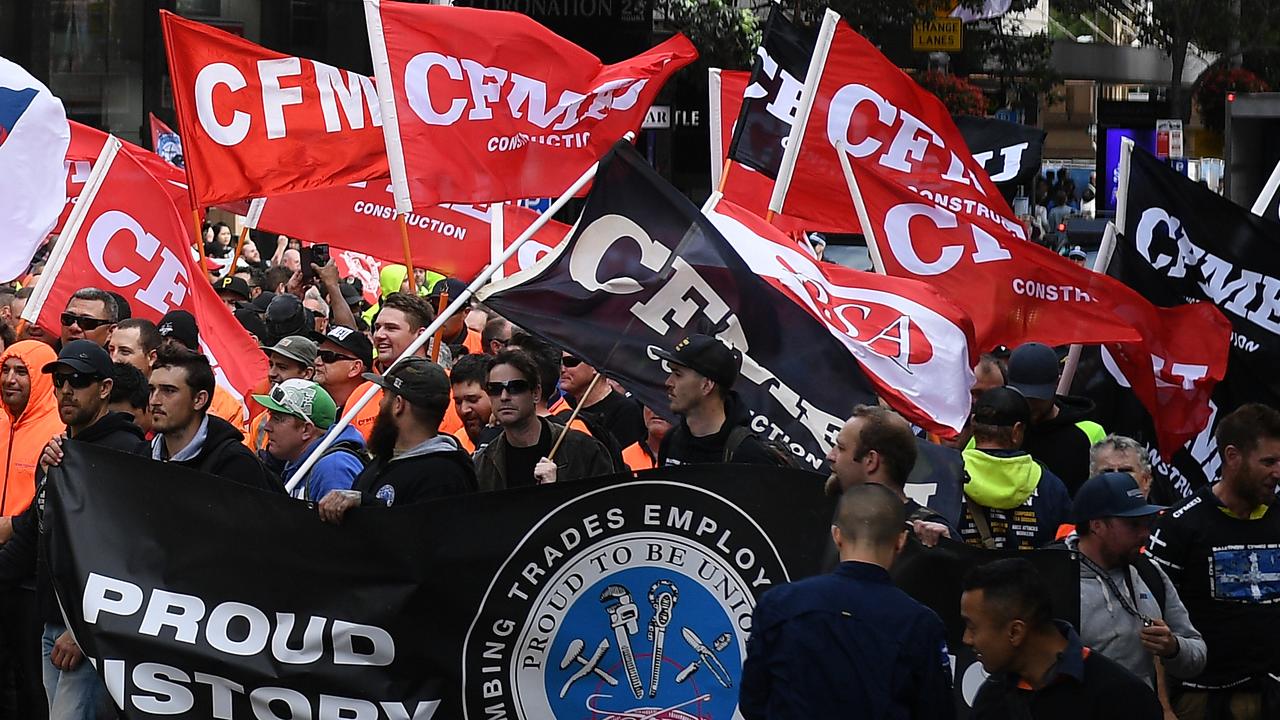Bosses urge Coalition to ditch support for criminalising wage theft
Employers will urge the Coalition to reverse support for criminal sanctions imposed on companies who exploit workers.

Employers will urge the Coalition to reverse its support for criminal sanctions being imposed on companies who engage in the “most serious and egregious exploitation” of workers.
Jobs and Industrial Relations Minister Kelly O’Dwyer said the government had given “in principle” support for the recommendations of the Migrant Workers’ Taskforce, including the imposition for the first time of criminal sanctions on employers engaging in “clear, deliberate and systemic” wage theft.
The taskforce, chaired by Allan Fels, found the criminalisation of wage underpayment was gaining increasing support, particularly in cases of deliberate, serious and intentional contraventions.
“The introduction of criminal sanctions would provide a clear signal to unscrupulous employers that exploitation of migrant workers is unacceptable, and the consequences of doing so can be severe.”
But Australian Industry Group chief executive Innes Willox said today the government should not implement the criminal sanctions.
“While at first glance, this might seem like a good idea, there are many reasons why this is not in anyone’s interests,’’ he said.

“Penalties for breaches of industrial laws were recently increased by up to 20 times and this already provides an effective deterrent,’’ he said.
“Implementing criminal penalties for wage underpayments would discourage investment, entrepreneurship and employment growth.
“Importantly, a criminal case would not deliver any back-pay to an underpaid worker. Where a criminal case is underway, any civil case to recoup unpaid amounts would be put on hold by the court until the criminal case is concluded. This means that underpaid workers could be waiting years for back-pay.”
Ms O’Dwyer said the government had “no tolerance for those who repeatedly and deliberately underpay workers, whether they are an Australian or a worker on a visa”.
“For the very first time, we will introduce criminal sanctions for the most serious and egregious forms of deliberate exploitation of workers,’’ she said.
But ACTU president Michele O’Neil said the taskforce’s recommendation for criminalisation “places the bar absurdly high”.
“Any real action on wage theft needs to ensure quick, easy and low cost access to justice,’’ she said.
Mr Willox said the extension of the accessorial liability provisions of the Fair Work Act for businesses which contract out services was also problematic.
“Outsourcing is a legitimate and important way for businesses to remain competitive and to continue to employ Australian workers,’’ he said.
“The existing accessorial liability provisions already provide strong protections for workers and impose liabilities on businesses and people that are knowingly concerned in any breaches of the law by other businesses.”
The taskforce also recommends a national labour hire registration scheme operate in the “high risk” industry sectors of horticulture, meat processing, cleaning and security.
Labour hire operators in the sectors would have to register with the scheme, and face losing their registration if they contravened a relevant law. Host employers would be required to use registered labour hire operators.
Mr Willox said a national labour hire licensing scheme for certain industries would only have merit if the state labour hire licensing schemes in Victoria, Queensland and South Australia were abolished.
“Otherwise, a national licensing scheme would simply impose an even more unreasonable cost and onerous regulatory burden on labour hire businesses and their clients,’’ he said.
Ms O’Neil said the proposed “light-touch regulatory model” for labour hire where the company’s inconvenience of being regulated is placed above the needs of exploited workers was clearly insufficient.
“It places the burden on exploited workers to prove why their exploiter should not be allowed to continue exploiting them,’’ she said.
“Any serious attempt to address dodgy labour hire operators must ensure that labour hire companies cannot be used to cut wages in any sector of any person working in Australia.
“A labour hire regulation scheme must ensure the principle of same job, same pay.”




To join the conversation, please log in. Don't have an account? Register
Join the conversation, you are commenting as Logout